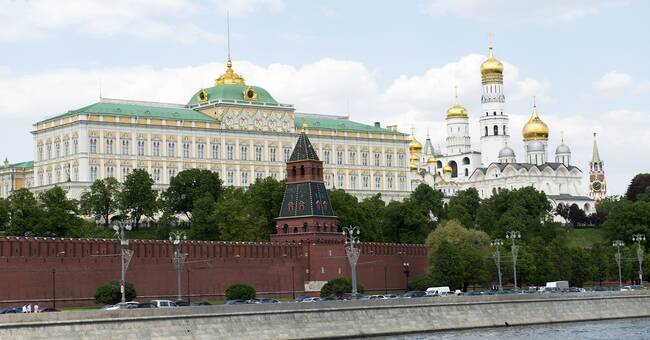The Russian parliamentary elections, which take place from Friday to Sunday this week, have a carefully planned outcome.
The United Russia party, which has been in power in the Duma since its formation in 2003, will continue to rule, despite independent opinion polls showing just under 30 percent support among citizens.
All forms of real opposition have been stopped by a number of different methods.
Failing public support
But it is nevertheless important for President Vladimir Putin that turnout does not become too low so that the regime does not lose too much in legitimacy.
During his first term as Russia's leader, he was helped by a very strong economy, thanks to the high oil price.
The financial crisis of 2008 temporarily stopped economic success, but until a few years ago, Putin was still able to rule with a fairly strong economy behind him thanks to oil.
Support for United Russia was also stronger then.
Following the illegal annexation of the Ukrainian Crimean peninsula in 2014, more than 50 percent said they supported United Russia that year, according to a poll Carolina Vendil Pallin has done of several polls.
In the Western world, on the other hand, the annexation was condemned in sharp terms and sanctions were imposed on Russian interests - something that left deep traces in the country's economy and ordinary Russians' wallets.
"Right after the annexation of Crimea, people were more willing to make financial sacrifices because they felt national pride," says Vendil Pallin.
The retirement age was raised
In the same year, the Russian economy was hit by falling oil prices.
- If oil revenues fall by a quarter or a year, it directly affects central government expenditure.
It reduces investments in roads and other infrastructure, which in turn has a negative effect on the economy, says Per Hammarlund, who analyzes emerging economies at SEB.
The Russian economy began to stagnate and this led to a weak development in real wages, says Hammarlund.
In the years after 2014, public opinion for United Russia declined.
- When this national frenzy after the annexation of Crimea began to die out in 2018, the issue of financial security became more important, says Carolina Vendil Pallin.
In the same year, the retirement age was raised - something that everyone affected by the decision strongly disapproved of.
Recovery and rising food prices
Now, during the recovery from the pandemic, food prices are rising faster than inflation - by 7.7 percent in August.
The incomes of pensioners, the military and government employees have not risen in line with inflation - they have had less left in their wallets than usual after the most necessary purchases.
It is also in these groups that United Russia has most of its support.
Turnout is generally low in Russia, but government employees are among those who vote to a greater extent.
- It happens that employees in government agencies and companies are exposed to pressure from the employer to vote, and then in United Russia, says Vendil Pallin.
It is in the light of this development that the Kremlin has thus paid out one-off checks to pensioners and veterans, and promises to raise the salaries of several groups of government employees.
Concerns about high food prices
The Russian economy is also currently relatively strong.
The mining industry, oil extraction and gas exports are doing well - three important components for the Russian economy, says Per Hammarlund.
Inflation has risen to 6.5 per cent on an annual basis and the central bank has responded by raising the interest rate to 6.75 per cent to cool the economy.
- The central bank has been given a mandate by the Kremlin that inflation must be kept down, I think it is political explosive even in a country like Russia. If there is one thing the Kremlin is afraid of, it is above all food inflation in combination with high unemployment, says Hammarlund.

